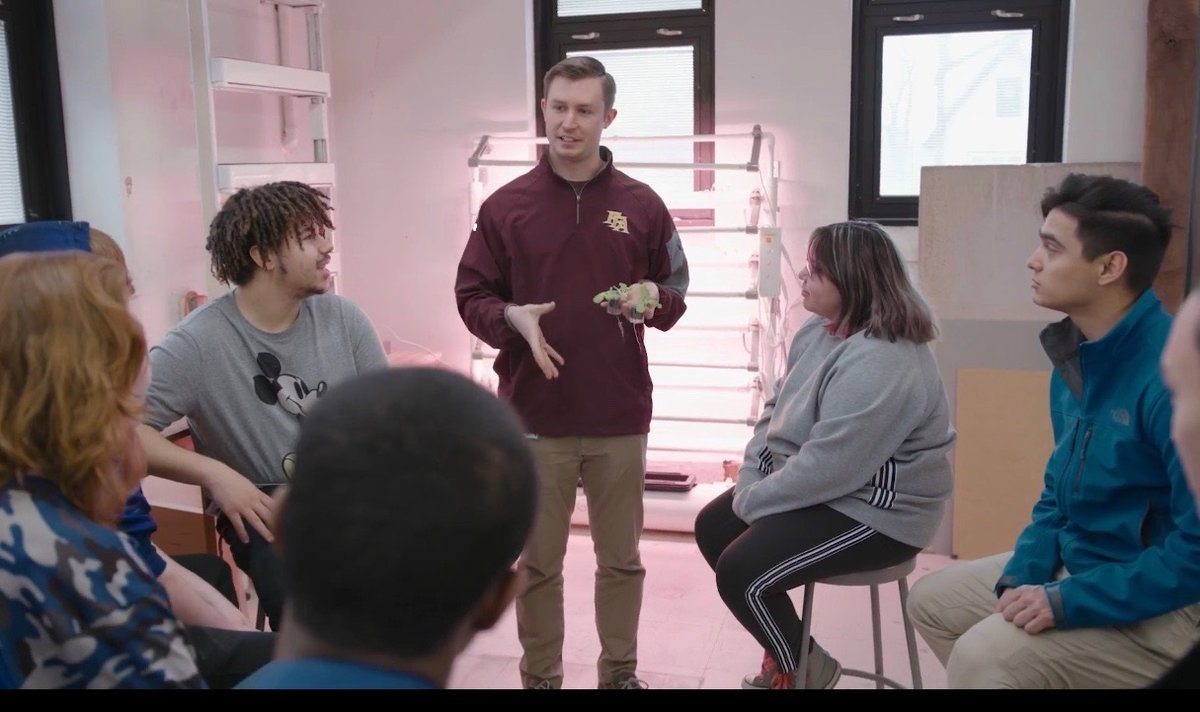
Teaching tomorrow’s ag teachers
CFANS is a leader in preparing students to teach the vital topics of agriculture, food and natural resources to elementary, middle and high schoolers

Pop quiz — the demand for what type of high school education program has been increasing exponentially in Minnesota in recent years? As the world looks to sustainably nourish a growing population, it’s good news that the answer is: agriculture, food, and natural resources (AFNR).
According to the Minnesota Agricultural Education Leadership Council (MAELC), since 2005, 27 school districts have added AFNR programs and 75 additional teaching positions had to be filled across the state. This is a 13 percent increase, with no signs of demand slowing for the 2021-22 school year. To accommodate this heightened interest, many Minnesota school districts are developing new AFNR programs — and they need more agriculture teachers to fill these critical roles.
The University of Minnesota College of Food, Agricultural and Natural Resource Sciences (CFANS) plays a key role in educating these future educators. The College offers an Agricultural Education Major, which prepares students to teach agricultural education to grades 5-12. With this major, students are licensed to teach agriscience, agribusiness, agriculture, horticulture, food systems, agrimechanics, and natural resource management. Their studies also include a year of student teaching.
A paramount profession
Today, many people want to understand the origins of the food they eat. According to the Innova Consumer Survey 2020, three in five global consumers say they are interested in learning more about where their food comes from and how it is made. As this interest grows, the importance of teaching youngsters about how food gets from farm to fork — and how to do that in a way that protects and conserves the environment — grows as well.
“Just two years ago, the year we started our program, we had 40 students involved in agricultural education,” said CFANS alumnus Ethan Dado (BS Agricultural Communication & Marketing, '18; BS Animal Science, '18; MS Agricultural Education, ‘19) who today teaches AFNR at Mankato Area Public Schools. “This year we have more than 400 students taking agricultural education classes.”
As Dado explains, the agriculture industry is so much more than farming. Redefining it to include food and natural resources really begins to broaden the conversation, and that’s when students become more interested. For example, Dado teaches an animal science class, but he doesn’t call it ‘intro to animal science.’ Instead, he makes it feel relevant to students by giving it a catchy name.
“I call it ‘pets and paws’ to get the students in the door, and then expose them to the world of animal science,” said Dado. “Most of our students have pets at home but they don’t connect that to animal science.” Dado sees this type of approach as instrumental in the growth and success of his schools’ AFNR program.
CFANS paves the way
Dado credits CFANS with giving him “a ton of skills that I utilize in my career.” These skills include networking and finding unique perspectives. “CFANS helped us to see how other folks view agriculture, specifically farming, and how we can better engage with these folks and better prepare all students to pursue careers in agriculture,” he said.
Dado shared that “opening perspectives and shifting mindsets” is one of the best experiences and best changes that CFANS helped create in him. He also values the many lasting connections he made at CFANS — “CFANS runs deep and folks that went to CFANS love the fact that they went to CFANS, and that’s true for a reason,” he said.
A career that changes lives
One of the things Dado likes best about being an AFNR teacher is working with young people and seeing their curiosity — especially their “a-ha moments.” He likes to say that there are three things we need every day: water and oxygen; food; and shelter. Agriculture provides food and shelter, and through it we are stewards of our air and water.
“To me, that connection itself is why agricultural education is so important. That’s what I find young people desiring to learn — how did my food get here, how was it processed, how was it prepared? Answering those questions through agricultural education helps students to really connect with their food and value it more,” he said, adding that when we start to value food more, we start to value people and the environment more, as well.
Agricultural education is one of the few areas that brings together all the core tenets of school — it includes math, science, social studies, writing, health, and physical education. “Agricultural education is a collaboration of all other parts of school,” said Dado. “Agricultural education is the answer to the question, ‘why does this matter?’”
As the demand for AFNR teachers continues to grow, CFANS is preparing its students to lead the way in educating future generations in Minnesota and throughout the world — a noble endeavor that will make a meaningful and lasting impact for both people and the planet.





